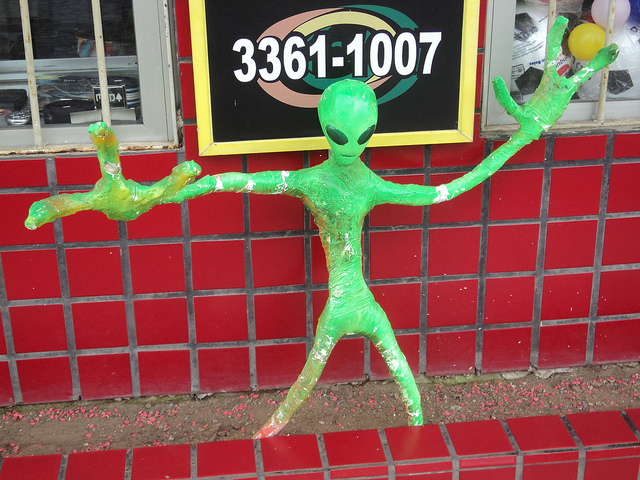For decades now, some researchers have speculated that people who report alien abduction experiences are simply trying to process the traumatic memories of childhood sexual abuse. Many abduction stories follow the same general pattern: the victim is alone at night, often quite young, when a large scary humanoid creature spirits them away and performs non-consensual sexual acts before they are returned.
And one thing abuse survivors and alien abductees have in common: a lot of people don't believe them.
According to this interesting (if upsetting) theory, abuse survivors suppress their traumatic memories. But repressed memories have a way of working themselves to the forefront, one way or another. The victims begin dreaming or hallucinating or mis-remembering these scenarios. It's a way that their minds can begin talking about what happened, without having to talk about it directly.
Of course, the topic of "repressed memories" is a hotly-debated concept. Many well-respected experts believe that repressing traumatic memories is not a legitimate phenomena, but something that belongs in the category of "junk science."
The jury is still out on the topic of recovered memory and traumatic amnesia.
Another theory holds that alien abduction experiences may be the brain reprocessing "accidental awareness," which is what happens when the anaesthesia doesn't quite work right when you're in surgery. This might account for the strongly medical overtones of many alien abduction scenarios, which often involve bright lights, faceless aliens (a haphazard memory of doctors in surgical masks), long needles, pain, helplessness, and the inability to move.
One study examined the famous abduction of Betty and Barney Hill, and questioned whether his abduction experience might have been a flashback to his recent tonsillectomy. The same report discussed the different ways that memories are formed, pointing out that "Trauma memories are not encoded as logical narratives, but as globs of sensation." The waking brain may struggle to make sense out of this "glob," and in doing so, get some of the details wrong.
Are alien abductees just processing memories of childhood sexual abuse?
Are alien abductees just processing memories of childhood sexual abuse?
Not sure which idea is sadder/scarier
